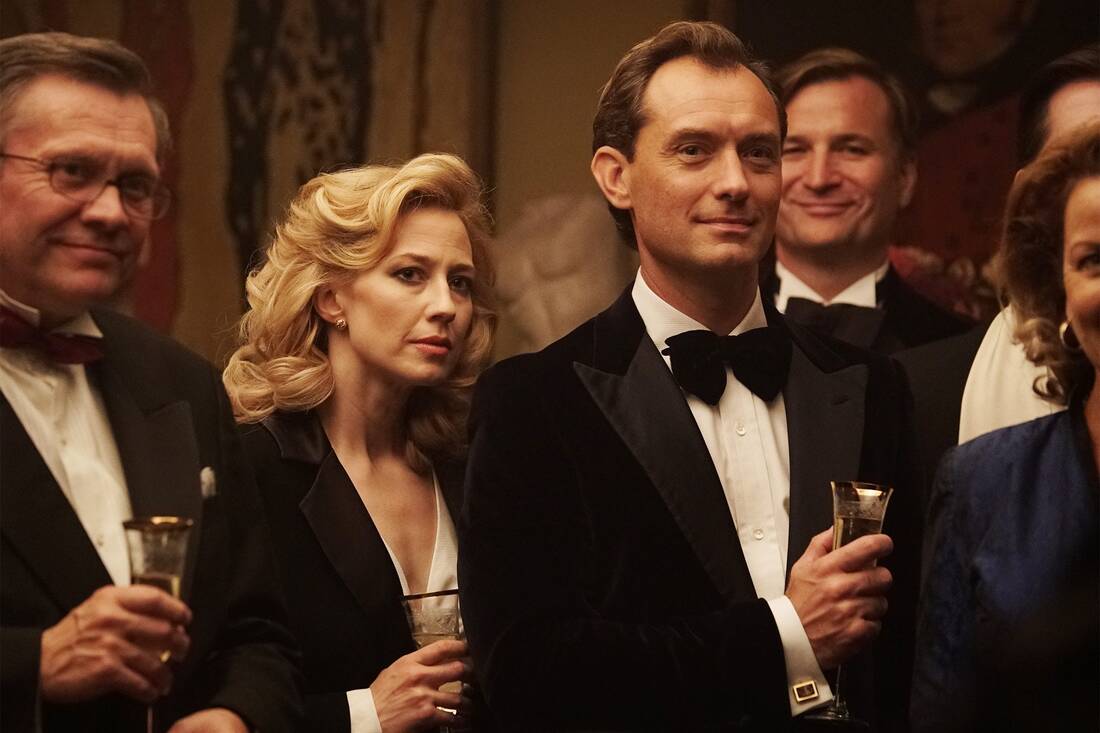The more the viewer learns about the O’Hara’s, the greater their distrust of Rory grows, as wells as the sense of historical role that people like him played. The family has moved repeatedly at his behest. He keeps changing employers but his tired motto of ‘be your own boss’ has stayed the same. The loud whine of a kitchen espresso machine heard early on provides a level of faux consumerist sophistication. Seeing Rory at work with his blue-blooded boss gives more insight into how the film and its characters view money, with the pristinely manicured and sculpted Rory viewing it as plumage and his overweight contented boss recoiling from naked displays of wealth. This idea of the striving and struggling character needing to show off his wealth while the actually rich character could care less is psychologically rich and thoroughly pathetic on Rory’s part. All of English history has told the long-rich boss that he’s valuable so why would he need to demonstrate his worth to anyone? Talk of second homes and fancy vacations from Rory marks him as a vulgar rube. After so completely stripping Rory bare, his ultimate plan of convincing his boss to sell to an American conglomerate so he can collect the resultant fees is building the neoliberal road to nowhere, where consolidation and monopolization serves to make everyone else’s life worse for no other purpose than people like Rory needing to sustain their gnawing insecurity and resultant grotesque standard of living.
As the theoretical recipient of this windfall, Allison is unimpressed. The Nest belongs to Coon thanks to two dinner scenes, both of which reveal to her and to the audience the level of Rory’s duplicity and delusion. In the first, Allison’s asides and reactions, closely monitored by Durkin’s camera in long holds and close-ups, are a precise chiseling away at her husband’s foolish pretensions and outright lies. The film portrays the couple initially as supportive and trusting, so it can’t all crumble at the first sign of stress. By the second dinner scene, however, Allison’s scalpel has been replaced by a sledgehammer as she smashes away at the fantasy that Rory has constructed. Coon has been the stealthy best actor of her generation in critically acclaimed but underseen TV dramas and she now has a cinematic equivalent. Her level of sneering disdain is a thing to behold, singlehandedly elevating The Nest into a can’t-miss film.
The look of The Nest is as impressive as the performances, expected from the mood and control that Durkin exhibited in Martha Marcy May Marlene. The classical compositions and patience of his camera makes The Nest feel far more considered and purposeful than other films like it. However, if his capability with female actors and his mastery of tone is solidified here, the period between films has perhaps lessened Durkin’s trust in his audience. The Nest is sailing towards the highest possible esteem until a late scene that is stunningly unnecessary between Rory and a cab driver. This confessional moment adds nothing but an admission that Durkin doesn’t think his expertly crafted characterization has come through and he needs Rory to outwardly state the film’s themes about presentation and personal facades. Coming as late as it does, this scene can’t help but overshadow the rest of the film and is a serious misstep in what’s otherwise an admirably constructed film for adults about adult concerns. B+

 RSS Feed
RSS Feed